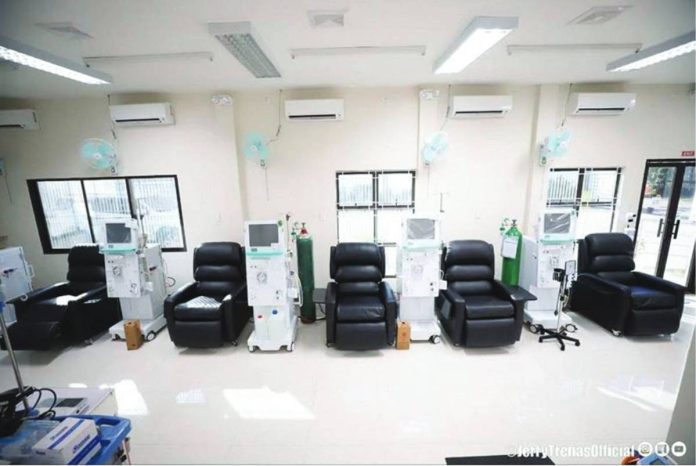
ILOILO City – A leading kidney specialist has sounded the alarm over the rise in chronic kidney disease (CKD) in the Philippines, warning that as many as one in five Filipinos may already be suffering from the condition — many unknowingly.
Dr. Kathleen Gaw-Te, vice president of the Philippine Society of Nephrology – Western Visayas, attributed the spike in CKD cases to poor dietary habits, sedentary lifestyles, and failure to manage underlying health issues such as hypertension and diabetes.
“Lifestyle is a huge factor,” said Gaw-Te. “Unhealthy food choices, physical inactivity, and poor management of existing conditions like hypertension and diabetes are driving up the number of CKD cases.”
Gaw-Te cited a 35 percent prevalence rate of CKD in the country — roughly seven million Filipinos — far exceeding the global average of nine to 13 percent.
“Many of them don’t even know they have it until the disease has reached an advanced stage,” she said.
In Western Visayas, the most common culprits behind CKD are long-standing high blood pressure and diabetes, though Gaw-Te also pointed to other growing contributors, including gout from elevated uric acid levels, the overuse of painkillers, and kidney inflammation known as glomerulonephritis.
“Many of these can be traced back to poor lifestyle habits. If people eat better, stay active, and monitor their health, we can significantly reduce the risk,” she added.
She emphasized that CKD often progresses silently, with symptoms appearing only in advanced stages. Early screening is therefore critical, especially for individuals with a family history of kidney problems.
“Patients are coming in younger and younger. We now see people in their 30s or even late 20s already suffering from high blood pressure,” she said. “If you have a family history, start getting screened by age 40.”
To combat the disease, the Philippine Society of Nephrology recommends the “8 Golden Rules for Kidney Health,” which include: maintaining a healthy diet and active lifestyle, controlling blood pressure and blood sugar, undergoing early screening, avoiding smoking, staying hydrated, using medications only under medical supervision, and scheduling regular checkups.
““Kidney disease doesn’t happen overnight,” Gaw-Te stressed. “It’s the result of years of choices, many of which we can control. That’s why prevention and early action are key.”
Department of Health data revealed that over 90,000 Filipinos were undergoing dialysis in 2022, with the number of dialysis-dependent patients growing annually by 12 to 15 percent in regions such as Davao.
It said that nationally, 94 percent of end-stage renal disease patients rely on hemodialysis, four percent on peritoneal dialysis, and just two percent have received kidney transplants./PN





